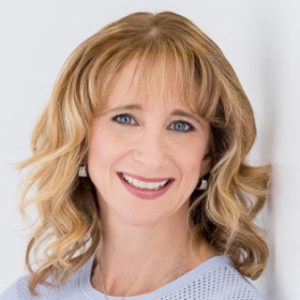My January small business segment on ABC’s Washington Business Report with Rebecca Cooper-Dupin focused on accountability and goal-setting strategies to start 2013 strong. Accompanying me was my accountability partner and personal financial advisor, Anne McCabe Triana, owner of CAM Private Wealth (http://www.camprivatewealth.com). I’ve expanded on those strategies here, incorporating many great ideas from other small business owners. (**The link to the segment is at the bottom of this story.)
What is an accountability partner?
An accountability partner is someone who holds you accountable to your goals. Typically they share many similarities with you. You both may be business owners in the same business stages, or perhaps in the same industries. Often, you are in the same stages of phases personally, or share similar health and well-being goals. Your partner is ideally someone who can relate to what you are trying to accomplish, what your challenges are, what you need to say yes to, and what you need to say no to.
Why work with an accountability partner?
Research has proven that when we write down our goals, there is a much stronger likelihood to achieve them. An accountability partner takes that one step further. Regularly scheduled accountability meetings keep a person on track to accomplish specific goals or complete specific tasks related to a larger goal. Knowing that there is someone who will hold you accountable puts additional pressure on you prioritize your time, be selective with your activities, and make progress.
Where can you find an accountability partner?
Accountability partners are everywhere once you set you mind to finding the right person. Here are some ways to find your perfect partner:
- Tap into your networks for like-minded people.
- Attend learning events. People that attend learning events have already adopted the mindset that they can learn a lot from others. In addition, if the learning event is a very specific topic, you will meet people who share the same interests.
- Ask for recommendations from people who know your situation, and may know compatible partners.
What should you look for in an accountability partner?
Your accountability partnership is a business relationship based on trust and respect. Here are some tips to find the right person:
- Chemistry is really important. Look for someone that you can develop a trust-based relationship with.
- Your accountability partners must be someone that WILL hold you accountable for your goals. They won’t let you slide.
- Synergies in multiple aspects of your life are important. For example: i. People that are in similar industries, or similar stages of growth can help each other push to the next level.
ii. People that are balancing raising children can help each other with strategies for time management, and keep each other on track for both personal and professional obligations.
iii. People that are both working towards a health goal – either exercise or diet changes – can hold each other accountable. The accountability can spread across multiple areas of your life.
What can accountability partners do to set up a successful partnership?
Finding the right person is only half of the recipe for success. The second piece is execution. To ensure a successful partnership, which will result in partners achieving their goals, follow these strategies:
- Set a permanent reporting process and time, and stick to it.
- Agree to send weekly goals to each other by a certain day, breaking them into the categories that you have agreed to.
- Make the appointment a recurring appointment (knowing that sometimes it will have to change).
- In person or phone call is fine, as long as you set aside enough time for each person to review their list.
- Use a template that works for both partners, and establish the categories. Some accountability partners focus solely on business goals; others take a more holistic approach to include personal goals.
- Set the rules of engagement – are you asking for feedback/guidance, or just reporting in?
How can you set goals that are achievable?
How can a person set goals that they can actually achieve – and that someone can hold accountable?
I recommend the SMART Goal method: Specific, Measurable, Actionable, Results-Driven, and with a Time Frame. You know when you have achieved it because you can check it off.
Creating bite-sized goals that are connected to a larger goal will lead to the achievement of the large goal. It’s not about focusing on the pot of gold at the end of the rainbow. It’s about focusing on the steps that will get you to the pot of gold.
Some inspiring accountability partnership success stories:
For my segment, I received some great success stories of accountability partners that have been essential in pushing their partners towards their goals.
Stephanie Abraham, owner of Abraham LLC (http://www.abrahamllc.com), and Saphira, owner of Saffron Dance (http://www.saffrondance.com):
We have been meeting every Friday morning for several hours to work ON our businesses rather than IN them. Without our weekly sessions progress would be slow or derailed by other busy-ness. The weekly sessions are like baby steps towards monthly goals.
Our accountability partnership isn’t just about business — it’s about life and managing / living as business owners with families and spouses and friends — It’s about “integrating” all the facets of a busy entrepreneurs’ life. For this we “check-in” with each other — it’s really helpful!
Lisa Karl, Owner of NOVA Creative Media, and Publisher of Find it in Ashburn (http://novacreativemedia.com):
I met the right person at a conference in Las Vegas…turns out she lives near me! We both are solopreneurs doing similar things and we just connected! Our goals are to keep each other moving forward, to give confidence and to have someone to brainstorm with. The pain-point was realizing we didn’t have that.
Maureen Schantz, Owner of Alternative Health Associates (http://www.althealthassociates.com):
It’s not just about accountability and getting things done but a trusting support system. We block off one hour. Always a phone conversation (partner is out of state), with a rotating goal list. We troubleshoot issues, brainstorm, and ask each other advice. We both had an outstanding 2012 and accredit most of that success to our accountability talks.
Adrienne Graham, Owner of EmpowerMe (http://www.empowerme.org):
I have multiple accountability partners. They work because each of my accountability partners keep me from giving up and stay on me to see everything through to completion. And they hold my feet to the fire when I don’t deliver. And it works in the reverse for them as well. We count on one another to keep motivated and moving forward.
Two I meet with on Skype monthly, another quarterly and the other twice a year (but we email often). Sometimes we’ll meet for an hour, sometimes it’s an all day lock in. Each meeting allows me to share what I have going on and address any areas I may be stuck. But it works both ways. The meetings aren’t just about my needs. The other person also brings their issues to the table. Nobody leaves until both of our issues are addressed.
Kim Phillips, Owner of InsideOut Creative Group (http://www.iocreativegroup.com) and Ahava Leibtag, Owner of Aha Media Group (http://www.ahamediagroup.com)
It works for us because we are both super goal-driven and are balancing our companies and having young kids. We keep each other accountable, cheer each other on, and sometimes have to tell one and another to get a grip and stop taking on quite so much. We talk on the phone once per month but are having an in person strategy session/spa day (because busy working moms need to combine these things for maximum value!). We go off of a structure of 30 day, 60 day and 90 day goals, speak for 30 minutes by phone and Ahava takes notes that she sends to me.
See the Washington Business Report TV segment here!
Missed the TV segment? Check it out below!
What works for you?
How are you staying on task with your goals in 2013? Share some of your strategies!






